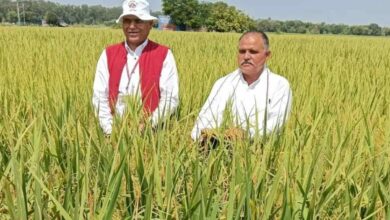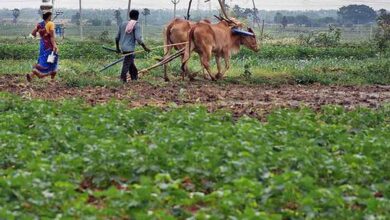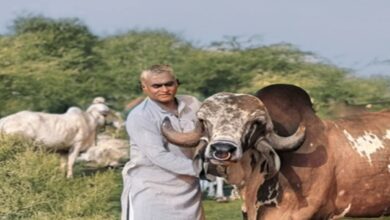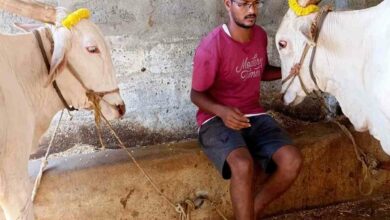Success Story: This couple from Assam earned a profit of around 1.25 lakh from chayote cultivation
Success Story: A 44-year-old farmer from the Dhemaji District named Bhakteswar Sonowal has emerged as a pioneer in the field of agricultural innovation. His success in chayote farming, which requires just two bighas of land and generates an annual turnover of lakhs, is evidence of the unrealized potential of vegetable production in Assam. Fellow farmers in the area find inspiration and motivation in his path from a modest agricultural upbringing to a leading role in local agriculture.
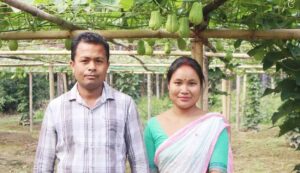
Being up in a farming household, Bhakteswar was exposed to agriculture from a young age and learned the nuances of the trade by working with his father. He tried with several crops throughout the years, but his fortunes didn’t really change until he learned about the potential of chayote cultivation. The vegetable was mostly imported from nearby states like Meghalaya and Arunachal Pradesh, despite the fact that it was eaten in large quantities in Assam.
Bhakteswar saw a chance to cultivate it locally, believing that Assam’s soil and climate would be perfect. His audacious choice to plant chayote on two bighas of his eight-bigha farm immediately paid off; he made around 1.25 lakhs in profit from his first harvest, which produced 50 quintals. In addition to changing his own livelihood, this early success encouraged many other farmers in the area to pursue similar careers.
A Lucrative Crop in Assam: Chayote
The cucurbit family includes chayote, sometimes referred to as chow chow, which is usually produced in colder climates. In the past, Meghalaya and other nearby states provided a large portion of the chayote market in Assam. But Sonowal’s business showed that local farming could greatly lessen reliance and strengthen the agricultural economy in the area.
He credits meticulous planning, soil management, and market understanding for his chayote farming success. Since transportation expenses from neighboring states would no longer be an issue, he realized that locally grown chayote would be fresher and more reasonably priced for wholesalers. As a result, indigenous chayote is now more competitive on the vegetable market in Assam.
Growing Vegetable Farming Scope in Assam
Assam has long been recognized for its rice farming. However, apart from animal grazing, rice fields are left fallow for about six months after the primary growing season. By successfully cultivating vegetables and other high-value products on these grounds, farmers like Sonowal are creating new sources of revenue.
Farmers in Assam are increasingly adopting the practice of cultivating exotic fruits and vegetables. The area’s potential for agriculture is shown by the commercial cultivation of crops including dragon fruit and strawberries. To provide a consistent income all year long, Sonowal personally uses his eight bighas of land for a variety of crops, such as Assam lemon, strawberries, and other vegetables.
Accessibility of High-Quality Seeds
The availability of high-quality seeds is a major component in the success of vegetable production in Assam. Sonowal buys his seeds from the Sipajhar local market, which has grown into a well-organized seed bazaar. Access to high-yield cultivars allows farmers to produce more productive and disease-resistant crops, lowering risks and increasing earnings.
Sonowal agrees that growing vegetables often calls for the use of chemical pesticides, fungicides, and fertilizers. He does, however, stress the need for using chemicals responsibly and only using them when absolutely required.
Crop rotation, according to him, is a way to preserve soil fertility without relying too much on pesticides. Growing the same crop over and over again may deplete the nutrients in the soil, increasing the need for synthetic fertilizers. Sonowal makes sure the land stays fertile and fruitful by carefully organizing his agricultural cycle.
He also uses organic methods, such as using cow manure as a natural fertilizer prior to each planting cycle. This promotes sustainable agriculture, improves soil quality, and uses fewer chemicals.
Chayote farming’s effects on the agricultural economy of Assam
Many of the farmers in Sonowal’s area have started growing chayote as a result of his success. Both farmers and consumers have benefited from Assam’s decreased reliance on outside markets as a result of the rise in domestic output.
Because it is fresher and requires less traveling, wholesalers like chayote that is farmed nearby. By giving farmers direct access to markets and fortifying Assam’s internal supply network, this change has improved crop returns.
The 50 quintals that Sonowal first produced was just the start. Motivated by the success of growing chayote, he now intends to cultivate more of his property and combine it with other vegetable crops to generate revenue all year round.
Appreciating and Assisting Farmers
Bhakteswar Sonowal and other farmers are instrumental in changing the agricultural landscape of Assam. More extensive assistance is required to encourage farmers to embrace new farming systems, even while government organizations recognize and honor such efforts.
Financial limitations are a significant obstacle that farmers must overcome. It often costs a lot of money to invest in sustainable agricultural practices, irrigation systems, and high-yield crops. Farmers should get active support from state governments and agricultural universities (SAUs) in the form of training programs, subsidies, and low-interest loan programs.
In order to guarantee that farmers get fair prices for their goods, market connections should also be reinforced. Creating cooperative networks and specialized vegetable marketplaces may help agricultural operations like Sonowal’s become even more profitable.
The chayote farming accomplishment of Bhakteswar Sonowal demonstrates the unrealized agricultural potential of Assam. In addition to enhancing his own standard of living, he has motivated other farmers with his inventiveness and ecological methods. Assam’s agricultural industry has the potential to flourish and make a substantial contribution to economic development with sustained assistance. A revolutionary change in farming begins with Sonowal’s quest.


